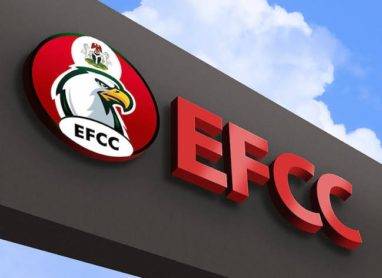Unearthing a Decade of Financial Transactions
The Economic and Financial Crimes Commission (EFCC) has embarked on a thorough investigation into the allocation of at least $347 billion to various companies in Nigeria, spanning the period from January 2014 to June 2023. These findings have emerged from a meticulous analysis of the sectoral utilisation of the Central Bank of Nigeria’s (CBN) forex data. The data not only sheds light on the vast sums directed towards these companies but also underscores the need for scrutiny in ensuring transparency and accountability in financial transactions.
As the EFCC delves into this extensive investigation, it seeks to uncover the intricacies of the funds allocated, probing how these significant sums were utilized by both local and foreign companies operating within the Nigerian economy. This marks a crucial effort by the anti-graft agency to safeguard the integrity of financial systems, sending a strong message against any potential financial misconduct that may have transpired over the past decade.
Forex Probe Expands to Foreign Firms Operating in Nigeria
In a noteworthy development, the EFCC has broadened its forex allocation probe to include foreign companies conducting business operations within Nigeria. The expansion of the investigation to encompass these international entities highlights the agency’s commitment to thoroughness and the pursuit of any potential irregularities in the allocation and utilization of foreign exchange.
This move underlines the significance of enforcing financial transparency not only among local businesses but also within the international business landscape operating in Nigeria. The extended scope of the investigation showcases the EFCC’s determination to leave no stone unturned, ensuring that all transactions, whether domestic or international, adhere to the highest standards of financial integrity.

Sectoral Utilisation Reveals Allocation Patterns
The sectoral utilisation of CBN’s forex data has provided valuable insights into how the allocated funds were distributed across various sectors and industries. The $347.49 billion allocated over the specified 10-year period has fueled diverse economic activities, raising questions about the efficiency and effectiveness of these financial allocations.
This revelation not only serves as a basis for the ongoing EFCC investigation but also prompts a broader discussion on the need for comprehensive oversight in financial sectors. As the agency continues its efforts to unravel the intricacies of these transactions, the sectoral utilisation data acts as a roadmap, guiding the investigation towards potential areas of concern and areas where improvements in financial governance may be required.
Overview of Forex Allocations and Probe
In a significant development, the Economic and Financial Crimes Commission (EFCC) has initiated a probe into forex allocations totaling billions of dollars to the Dangote Group and 51 other companies during the tenure of the former Governor of the Central Bank of Nigeria, Godwin Emefiele. The investigation comes amidst growing concerns about the transparency and accountability of such allocations.
A detailed breakdown of the allocations per year reveals a substantial disbursement, with the bank releasing $65.99 billion in 2014, $44.6 billion in 2015, $25.5 billion in 2016, $27.64 billion in 2017, $40.81 billion in 2018, $43.99 billion in 2019, $28.24 billion in 2020, and $16.4 billion between January 2021 and September 2021. Notably, $17.38 billion was disbursed between October 2021 and March 2022, and a staggering $36.88 billion between April 2022 and June 2023.

Allocation Distribution Across Sectors
The industrial sector emerged as the primary beneficiary of the forex allocations, receiving a substantial $69.71 billion during the reported period. Other sectors that received notable allocations include food products ($24.88 billion), manufactured products ($32.73 billion), transport sector ($6.67 billion), agricultural sector ($2.83 billion), minerals ($2.88 billion), and the oil sector ($37.46 billion). These figures underscore the diverse distribution of funds among key sectors of the economy.
EFCC’s Investigation of Foreign Firms for Import and Export Violations
In a parallel development, the EFCC has expanded its investigation to include foreign firms suspected of import and export violations. The targeted companies include Crane Currency Limited, Gleseck+Deverint GmbH, De La Rue Ltd, Oberthur Fiduciaire SAS, and Orelll Fussli. This information is disclosed in an internal memo from the anti-graft agency, signed by the Director of Operations, Hadiza Junaidu, dated December 21, 2023, and titled ‘Request for Information’ (Reference: CB:4000/EFCC/DOPS/VOL.28/104).
The memo urges a prompt response from the relevant commands and sections, emphasizing the urgency of confirming whether the listed foreign companies are currently under investigation for import/export violations or any other offenses. The distribution list includes zonal commanders and heads of operations, emphasizing the seriousness and scope of the EFCC’s inquiry.
Conclusion
As the EFCC delves into the forex allocation probe and expands its scrutiny to foreign companies, questions linger about the duration of the investigation and its potential implications for both domestic and international entities involved. The developments underscore the need for increased transparency and accountability in financial processes to maintain public trust and foster a robust economic environment.
Table of Contents
Discover more from OGM News NG
Subscribe to get the latest posts sent to your email.














